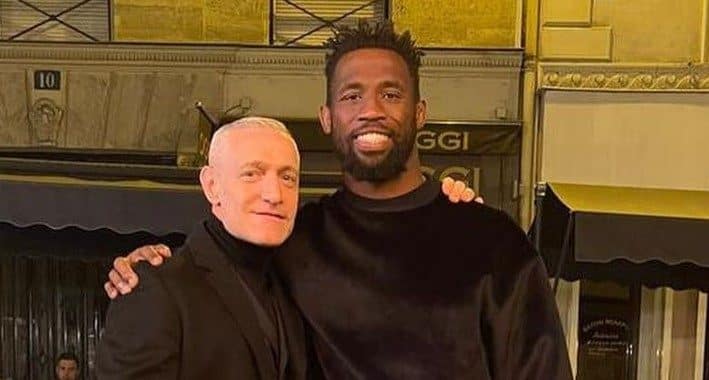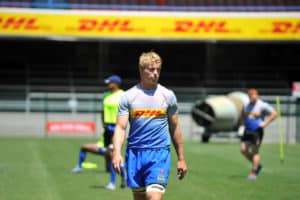Roc Nation Sports president Michael Yormark has called for drastic changes in the way South African sport, including rugby, is run.
Yormark was speaking at the 2021 Hollard Sport Industry Awards on 25 November along with event MC and sports broadcaster Motshidisi Mohono.
During the conversation, Yormark opened up about issues affecting South African sport, including the relationship between the South African franchises and SA Rugby, and whether professional rugby players are given enough of a say.
Founded in 2008, Roc Nation has grown into one of the world’s biggest entertainment companies, with Roc Nation Sports launched in 2013.
Roc Nation Sports first popped up on the South African sports industry radar at the end of 2019, when it signed World Cup-winning Springbok captain Siya Kolisi before the agency added fellow Springboks Cheslin Kolbe, Sbu Nkosi and Aphelele Fassi to its books, along with former Bok prop Beast Mtawarira.
Yormark said the South African sports industry can do far more to capitalise on the star power of its players.
“When you think about South Africa, the players have no voice and there is no true partnership,” Yormark said. “The governing bodies control sport, whether it’s rugby, cricket or football – the players don’t have a seat at the table and are not involved in the decision-making.
“That’s a problem. We’re trying to elevate the influence of athletes in South Africa to push them to the table, to give them that opportunity to be true partners in the sports that they are participating in. That’s one of the biggest differences between sports in South Africa and America.”
Yormark is a member of the American consortium that acquired a 51% controlling share in the Sharks in January.
He said that other South African teams would do well to follow suit in acquiring private capital.
“One of the things you would have seen recently with the Sharks is the influence of private ownership, and that’s another area that South Africa is going to have to accept moving forward,” he added.
“They have to attract private ownership. That’s how they are going to grow these clubs, which currently in South Africa are undercapitalised.
“They need capital infusion, they need best practices from American sport, they need to understand the concept of true partnership between the governing bodies, the fans, the clubs and the players. And once they are willing to accept that, we can take sport in South Africa and truly bring it to the next level and make it profitable.”
Yormark added that the dynamic between SA Rugby and the franchises also needs to change.
“Rugby clubs [franchises] in South Africa are secondary to the national team, and that can’t happen,” he said. “That dynamic needs to change, because as a secondary priority to your national team, they’ll never survive.
“In rugby and football, it’s the clubs who are paying the players, enriching the local community, and creating jobs on a consistent basis in each of their local markets. The clubs are super, super important – they can’t be treated like the stepchild, and they can’t be just a feeder system to the national teams. It’s not right, it has to change, and we’re going to do everything we can to impact that change.”
Photo: Instagram/@michaelyormark





